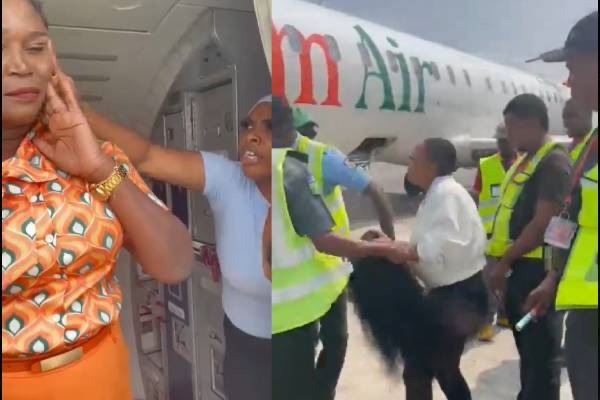
Relief for KWAM 1 and ValueJet Crew as NCAA Slashes Flight Ban to One Month and Moves to Restore Pilots’ Licenses

In a surprising turn of events that has stirred reactions across the Nigerian aviation industry and entertainment circles, the Nigerian Civil Aviation Authority (NCAA) has announced a significant reduction in the flight ban earlier slammed on Fuji music icon Wasiu Ayinde Marshal, popularly known as KWAM 1, and has also decided to restore the licenses of ValueJet’s Captain Oluranti Ogoyi and First Officer Ivan Oloba. The decision, which comes just weeks after the initial ban was made public, marks a sharp shift from the NCAA’s earlier hardline stance, a move many observers are interpreting as a victory for dialogue, appeals, and behind-the-scenes negotiations.
The saga began when KWAM 1 was embroiled in a controversial in-flight incident that raised serious safety and operational concerns for aviation authorities. Details surrounding the altercation were closely guarded in official statements, but sources within the industry revealed that the matter was deemed severe enough to warrant immediate suspension of the involved parties. The ValueJet flight crew — Captain Ogoyi and First Officer Oloba — were at the center of the fallout, with their licenses suspended pending investigations. For KWAM 1, the punishment was a full flight ban, an unprecedented move for a celebrity of his stature, one that not only restricted his travel freedom but also sparked heated conversations about the conduct of public figures on flights and the standards of professionalism in the Nigerian aviation sector.
At the time, the NCAA maintained that its decision was rooted in its commitment to aviation safety and order, noting that the integrity of in-flight operations must never be compromised by unruly behavior, no matter the personality involved. While many lauded the agency for taking such a firm position, others felt the punishment was excessive and hinted at a possible public relations overreach. In the days that followed, voices from both the entertainment industry and aviation unions called for a more measured approach, urging the NCAA to consider mitigating factors and the reputational damage the matter was already causing for all parties involved.
It seems those calls have now yielded results. In its latest statement, the NCAA confirmed that after a thorough review of the incident, and taking into account appeals from stakeholders, KWAM 1’s ban has been reduced to just one month. The decision essentially means that the music legend will soon be free to resume his travels, whether for shows, personal engagements, or other commitments. For the ValueJet pilots, the restoration of their licenses marks the end of a tense and uncertain chapter that threatened their professional standing and livelihoods. Captain Ogoyi and First Officer Oloba are now expected to return to active duty once administrative processes for the reinstatement are concluded.
Insiders suggest that the outcome may have been influenced by a combination of legal consultations, mediation efforts, and a push from influential figures in both the aviation and entertainment industries who wanted the matter resolved amicably. While the NCAA did not explicitly state that apologies or reconciliatory gestures played a role, it is worth noting that public contrition has, in the past, swayed disciplinary bodies in Nigeria. KWAM 1 himself has not issued a detailed public statement since the announcement of the ban reduction, but sources close to the artist describe him as relieved and eager to move on from what has been one of the most public controversies of his career.
For the ValueJet crew, the reinstatement is not just a professional reprieve but a reputational reset. Pilots operate under intense scrutiny, and license suspensions — even temporary ones — can cast long shadows over careers. With their names cleared for return, Captain Ogoyi and First Officer Oloba will be looking to demonstrate that their handling of the incident was within acceptable operational standards and that the matter will not impact their future roles in the cockpit.
The NCAA’s decision has sparked mixed reactions among the public. Some applaud the regulator for showing flexibility and a willingness to adjust its initial position, framing the move as a sign that the agency is not above listening to reason and re-evaluating its stance when new perspectives emerge. Others, however, argue that the reversal could send the wrong message, potentially emboldening bad behavior on flights if high-profile individuals believe penalties can be negotiated down. The debate touches on deeper issues about discipline, fairness, and the perception of equal treatment in Nigeria’s legal and regulatory frameworks.
For KWAM 1, the controversy arrives in a year that was otherwise shaping up to be one of celebratory performances, high-profile shows, and continued dominance in the Fuji music scene. Known for his commanding stage presence and long-standing influence in Nigerian music, he now faces the delicate task of navigating public opinion post-ban. Public relations experts suggest that a carefully crafted acknowledgment of the incident, combined with an emphasis on lessons learned, could help restore his standing even among those who disapproved of his alleged conduct.
In the broader context, the episode serves as a reminder of the growing attention on in-flight behavior in Nigeria. Incidents involving unruly passengers have increased in recent years, mirroring global trends, and aviation authorities have been under pressure to enforce rules strictly to protect crew and passenger safety. This latest development shows that while enforcement is critical, there is also room for discretion, especially when circumstances warrant a softer landing.
The Nigerian entertainment industry, ever quick to rally around its stars, has largely welcomed the NCAA’s new decision, with some prominent figures taking to social media to express relief. Messages of support have poured in for the ValueJet crew as well, recognizing the ordeal they have endured over the past weeks. Meanwhile, the public waits to see whether this resolution will prompt new guidelines for handling high-profile incidents in aviation, balancing accountability with fairness.
As things stand, KWAM 1’s travel ban is set to expire soon, and ValueJet’s Captain Ogoyi and First Officer Oloba are on course to resume their roles in the skies. While the storm of controversy may have lost much of its force, its echoes will linger, shaping conversations about discipline, image, and the delicate intersection between celebrity culture and regulatory enforcement. Whether this will be remembered as a story of justice tempered with mercy or as a cautionary tale about the pressures faced by regulators in high-profile cases remains to be seen. But one thing is certain — both the aviation and entertainment industries will be watching closely, ready to take notes for the next time turbulence hits.


